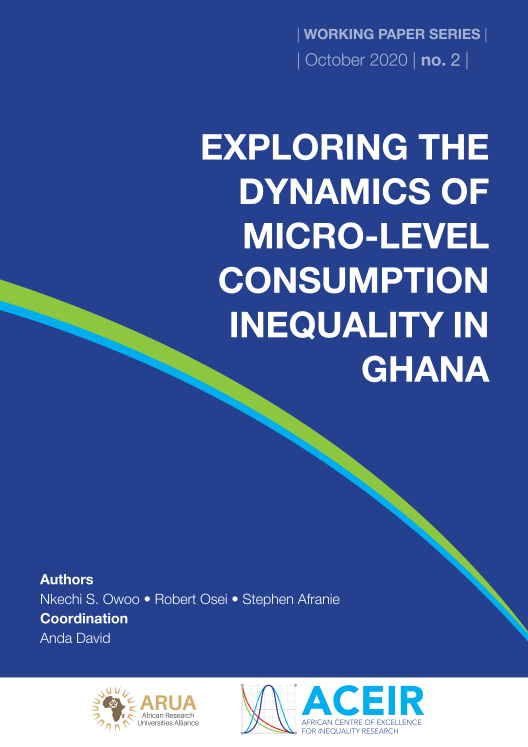Exploring the dynamics of micro-level consumption inequality in Ghana
Nkechi S. Owoo, Robert D. Osei, Stephen Afranie
ACEIR Working Paper no. 2, October 2020

Although poverty and inequality are related concepts, they are by no means identical and the use of welfare ratios and household per capita expenditures as proxies for both is inadequate as it endorses the usage of similar policy interventions. This paper proposes another measure of inequality at the micro-level. Household deviation scores are derived from the family of generalised entropy inequality measures, with greater deviation scores from the population mean indicative of greater micro-level inequality. By means of this novel construct, the authors are able to model the correlates of poverty and inequality separately, using a panel dataset for Ghana. They find four different cases of correlations for household poverty and inequality. While some factors are associated with both increasing poverty and inequality, such as urban farming and higher household dependency ratios, other factors are associated with decreasing poverty and inequality such as urbanisation and the provision of social safety nets. Perhaps more interestingly, some factors are associated with increasing (decreasing) poverty but decreasing (increasing) inequality. These findings on variations in the correlates of both poverty and inequality welfare outcomes allow greater policy concentration on not just poverty, as has been the case in many developing countries, but also on inequality. The authors conclude that policy interventions to reduce poverty do not necessarily translate into reductions in inequality. It would be important to design more nuanced interventions, therefore, to ensure that both welfare outcomes – poverty and inequality – are satisfactorily and simultaneously achieved. Read more
